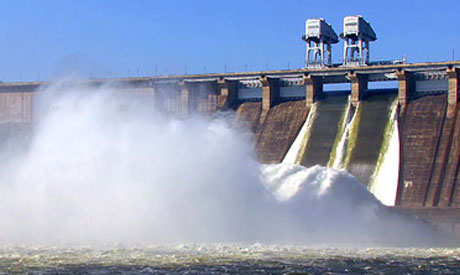DEBKAfile Special Report January 27, 2014, 6:58 PM (IST)

Field Marshal Abdel-Fattah El-Sisi to run for president of Egypt
Egypt’s Defense Minister and virtual strongman Gen. Abdel-Fattah El-Sisi had three options after the new constitutional referendum was out of the way. Should he run as president or pick a tame candidate, when to call an election and should it take place before or after the parliamentary poll: In fact, he rolled them all in a single package. Monday, Jan. 27, the general promoted himself to the rank of field marshal and resigned as defense minister preparatory to announcing his run for the presidency in a vote (still unscheduled) to take place before parliamentary elections.
He opted for the presidency even through the new constitution approved two weeks ago by a 98 percent popular majority substantially reduced the powers of that post, by removing the army from the jurisdiction of the executive branch of presidency and government.
The new charter transformed the military into an independent entity, its policies, decisions and operations free of the oversight of or intervention by the president or prime minister. The generals’ powers were thus enhanced to exceed those enjoyed by the authoritarian President Hosni Mubarak, or indeed his successors in post-revolution Egypt, while elected political institutions' authority was attenuated.
Full democracy in Egypt has therefore been put on hold.
Gen. El-Sisi had to choose between running as president, and then flouting the new constitution by choosing his own tame defense minister and generals – or retaining defense and engineering the election of a docile president.
According to our sources, the Egyptian strongman confided to his inner circle that the president was the head of state and respected as such both at home and in foreign relations. He therefore decided he wanted to be president after all, and would trust his popularity to place the job within his grasp and not make objections to his appointment of a dependably loyal defense chief and military elite.
That way El-Sisi, would stand at the head of the two national pinnacles of power – the army and the political executive.
According to our sources, the Egyptian strongman confided to his inner circle that the president was the head of state and respected as such both at home and in foreign relations. He therefore decided he wanted to be president after all, and would trust his popularity to place the job within his grasp and not make objections to his appointment of a dependably loyal defense chief and military elite.
That way El-Sisi, would stand at the head of the two national pinnacles of power – the army and the political executive.
As future president, Field Marshal El-Sisi will have to prove his mettle in four huge security tasks, over and above the job of feeding the proliferating Egyptian people:
1. Although the Muslim Brotherhood has been kicked out of power and outlawed as a terrorist group, it is far from being wiped out. It is a troublesome threat to security on the streets of Egypt’s cities and engages in terrorist tactics to boot. El-Sisi has still to finish the job of eradicating or at least reducing the Brothers’ influence.
2. The Sinai Peninsula is a hotbed of swarming Al Qaeda and Salafist forces which continue to plague Egypt’s armed forces, often in league with the Brotherhood underground. The major offensive he embarked on last year to root out the jihadist networks still needs to be finished.
3. One of the keys to this goal, the general believes, is the removal of Palestinian Hamas rule from the Gaza Strip. Hamas is the offspring of the Egyptian Muslim Brotherhood. It provides both parent and Sinai jihadists with a support system. So long as Hamas rules the enclave, El-Sisi sees no prospect of the Egyptian military reasserting its authority in the Sinai Peninsula or containing the Muslim Brotherhood’s subversive activities.
4. For Egypt, resolving the dispute with Ethiopia over the Nile waters is an existential imperative. The general hopes the dispute over Ethiopia’s Renaissance Dam, which draws off one-fourth of Egypt’s Nile waters, can be resolved peacefully. If not, he may consider going to war for control of the river’s sources.



